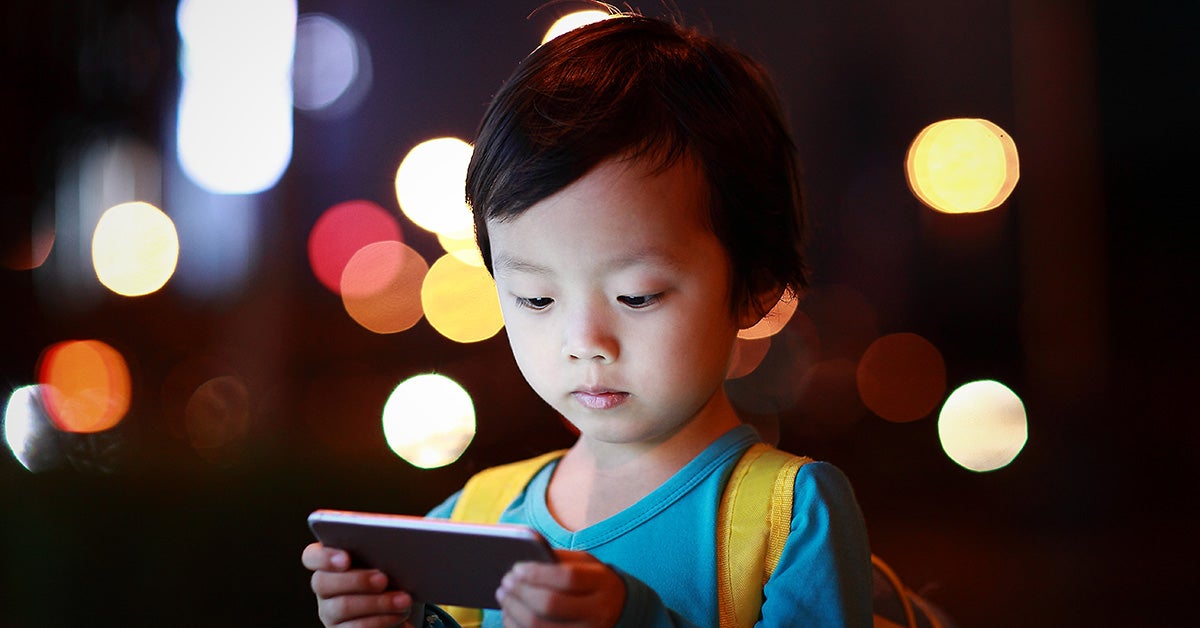How is screen-time affecting the children?

Khevna.P.Shah, INN/Bangalore
@Shahkhevna1, @Infodeaofficial
Since the past one and half years, there has been a huge lifestyle change. From food to education, everything has changed and the people are adjusting to that change. And one such change is extensive screen-hours. From online education to entertainment, kids are exposed to the screen for a long period, restricting them to practice any outdoor activities. But how will elongated screen time affect the child?
Ever since the pandemic, a child’s day starts with ‘screen’ and also ends with one. It is surely an increasing concern among the parents, how it might affect the child’s vision and health. But the recent study by education experts from around the world claims that screen time doesn’t matter, but the content that is exposed to the child matters to his or he well-being. Therefore, it is important to draw a line between productive and unproductive screen time. While the latter often refers to gaming and passive consumption of videos, productive screen time engages children in the process of learning.

How is screen time affecting the kid’s brain?
Data collected from the National Institutes of Health (NIH)study that began in 2018 indicates that children who spent more than two hours a day on screen-time scored lower on thinking and language tests. And children with more than seven hours of screen time a day experienced thinning of the brain’s cortex, an area of the brain related to critical thinking and reasoning. Language development expands rapidly between 11/2 to 3 years of age and according to the results of few studies, children who interact and play with parents are more likely to learn the language. On the other hand, the children who watch a lot of television have performed less on reading tests and showed an attention deficit. Generally, when the parents are busy, they often hand over the electronic gadgets to the children, often seen during shopping, this might inhibit the child’s ability to observe and experience the environment around him or her since their entire focus is on the virtual environment.
Does screen time impacts the child’s sleeping pattern?
According to the doctors, it is advised to avoid the usage of electronic devices at least two hours before sleeping. Our production of melatonin-the sleep hormone secretes when the sun sets, but the blue light from the screen inhibits the secretion of melatonin, which in turn delays sleep. Watching Tv- or playing passive-aggressive video games activated our brain and bodies restricting us to sleep. According to a study in 2015, infants who were exposed to the screen in the evening showed significantly shorted nighttime sleep than those who that no evening screen exposure.
For preteens and teenagers, excessive use of screens late at night will affect their sleep, behavior, and cognitive performance in school and interfere with learning and excessive screen time leads to sleep deprivation which is linked to obesity and can affect self-esteem and social isolation.
How does extended screen time affect the eyes?
This is a valid concern among the parents because the blinking rate decreases when exposed to the screen for a long time, resulting in the eyes feeling dry. When this happens is it necessary to follow the 20-20 rule meaning after every 20 minutes, one must shut their eyes for 20 seconds. And also staying hydrated is a must. Switching to laptops and computer screens is advisable as it maintains one arm distance when compared to phones and tablets.
What are the tips parents can follow to limit screen time for kids?
- Co-watch
Parents can watch the show or game with them to help them understand what they’re seeing. Engage with them and repeat concepts after the show is over so they’re more likely to retain that information.
- Keep bedtime, mealtime, and family time screen-free.
Balancing online and offline time is extremely important. Avoid the usage of screens except for long trips, and impose a curfew or an agreed-upon time when your family shuts off all screens.
- Sleep, healthy nutrition, and exercise.
These are essential to optimal brain growth and development and health and wellness for youngsters and adults alike. And excessive screen time can impact all three. Children who spend more time in front of screens tend to eat more fast food and fewer fruits and vegetables and get less sleep and exercise. Therefore, it’s vital to include healthy lifestyle choices as a part of the daily routine, also as limiting screen time.



